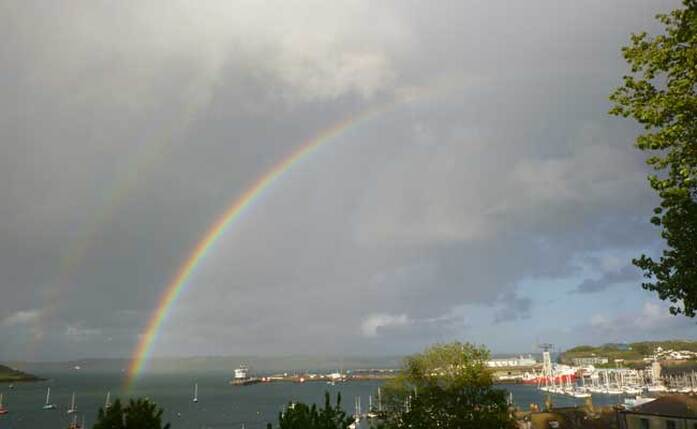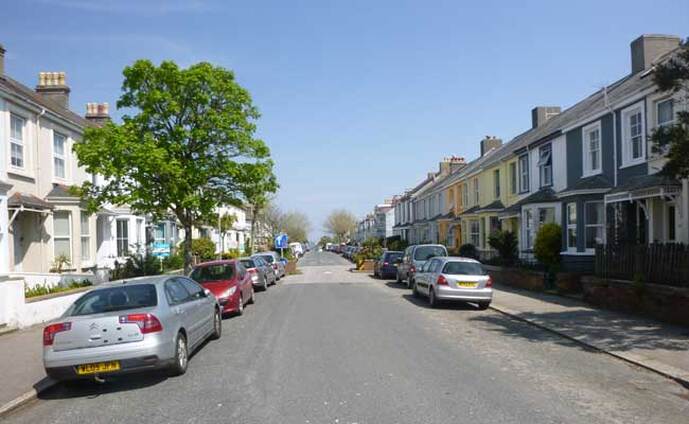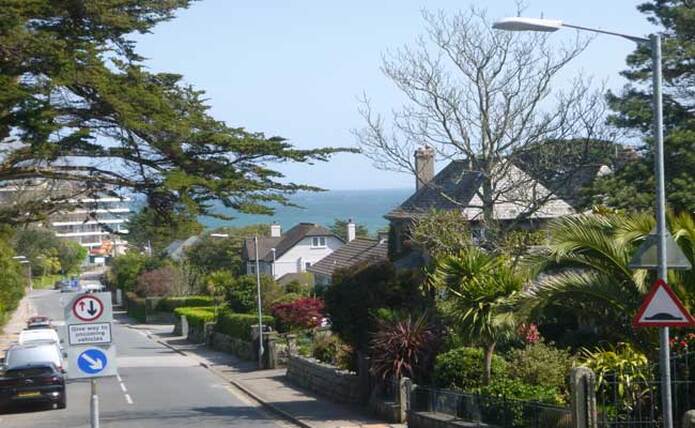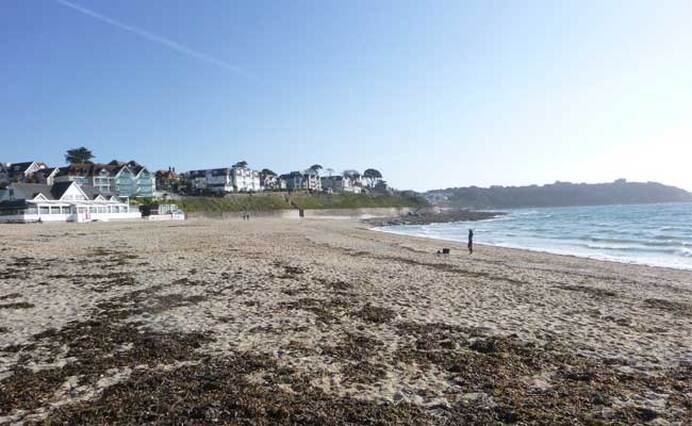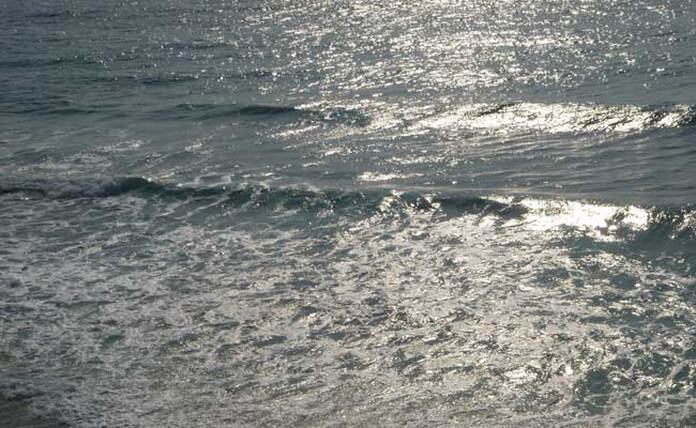We’re in lockdown because we don’t want to catch Covid-19.
Despite all the committees ranged against it, the Cobra meetings and the government scientific advisers, the daily briefings, the slide shows and the statistics, the whole not-travelling circus, the inconvenient truth is that Covid-19 isn’t losing this fight.
Not yet, anyway.
In the news last weekend, there was a story about Georgia (USA). The governor relaxed lockdown restrictions on small businesses. But some (most) of those businesses decided to stay locked down.
That makes sense.
When the lockdown ends, I won’t be hugging strangers in the streets.
Sorry – “when the lockdown ends”. Silly me. When the government announces that it is relaxing restrictions.
Or to be exact, when the government announces that it is relaxing restrictions in a way that it hopes won’t give the media grounds for attacking it if the relaxation is followed by a second wave...
…because there may be people silly enough to believe that the virus has gone just because the government says they can come out now. But there’s only so long you – I can go on extending a sentence.
This is getting a bit gnarly. The truth is, we’re going to be infectious to each other for a while yet. But we need to get back to work.
That, I think, qualifies as a new normal.
Maybe it’s just me, but I get the sense that all the high-level talk and Q&A about the pandemic, the lockdown, all the rest of it, is about the old normal.
Is the economy in a V-shaped recession? Will British Airways return to 2019 customer numbers in two years or three?
So very much not the questions to be asking right now.
Oh, not another daily briefing.
Ah, that’s what the R-number is. Thanks for explaining it again.
Five tests, eh? Do you remember Gordon Brown’s Five Tests for whether or not we join the Euro? No, I suppose you wouldn’t, at your age, minister.
[When I hear them talking about their five tests, I feel like Meryl Streep’s character in The Devil Wears Prada. Remember? The “Blue-Sweater Scene”, as it turns out to be called on YouTube?]
What has to happen, before we get real about this?
How do we devise a society – not an economy, a society – in which we can obtain what we need by co-operating (perhaps not even working) with people whose very presence may be dangerous to us?
By squabbling over whether or not the government should advise us to wear facemasks or not?
I don’t think so.
PS: My title question. Some years back, I interviewed Professor Jem Bendell for a piece I was writing ahead of a big, serious-minded banking conference (Sibos, if you’re interested). His subject was (and remains) deep adaptation in the face of economic/environmental collapse. Find him on YouTube. Seriously – do.
What comes back to me now, from my days interviewing speakers ahead of conferences, was the term “black-swan event”. This has quite a history, but it was first given its current meaning by Nassim Nicholas Taleb in his 2001 book Fooled by Randomness.
I’m tempted to say that it has been misused ever since, to describe unexpected events. The characteristics of a black-swan event, as defined by Taleb, are: that it is unexpected; that it has a major impact; that it is rationalised afterwards. My non-italics.
Taleb himself has suggested that the current pandemic is actually a white-swan event, in that (my words) it was inevitable, or at least highly likely to happen, eventually. Big impact, but not unexpected.
And I’m not quite sure where I stand on post-pandemic rationalisation, although we’re all doing it. “Meant”, anybody? Serves us right, anybody? Obvious consequence of globalisation, anybody?
For me, the recurring multicoloured-swan event is that daily briefing. Turning up on a daily basis to say nothing new isn’t a useful contribution. Didn’t expect that, although now I come to think about it … sigh. These are the leaders on whom we rely to get us out of this mess. Don’t.
My other multicoloured-swan aspect of the current crisis is…
…the world is collapsing around us; the Global Economy has vanished overnight; the centre is continuing to deny that it cannot hold; everything is falling apart...
…and yet – it’s still possible to order a takeaway pizza.
Nobody would believe it. I don’t believe it. But that’s what happens in a real-life apocalypse. Priorities change.
I slept hardly at all last night, not sure why not, and this morning my mind feels more sepia-toned than clear.
That’s not a bad image, I suppose, but I’ve run through shadowed, riddled with dry rot, soft, sagging, made of cheese (blue cheese?), mildewed and damp, and I still haven’t pinpointed it. Sepia-toned. It’ll have to do.
I’m not very intelligent today. It’s raining outside, my lower back aches, I shouldn’t have had that second cup of tea first thing, and I can just tell I’m going to be niggling for hours over whether that comma looks right after the opening ‘Today’.
But this is my consciousness we’re talking about; the continuous ‘me’ that looks out at the world. How can the depth, breadth, quality, whatever, of my perception be different from day to day? Am I less ‘me’ today? What am I missing today that I would have picked up yesterday?
There’s a seagull just outside the window, standing on the stone wall. It’s looking at me (he? she?) and I’m looking at it. And there’s something to say about that seagull, but in the moment of picking up my coffee mug and putting it down again, I’ve forgotten what it is.
What is the difference between the ‘me’ of yesterday, who woke up from a deep sleep to realise that it was after nine, who could have been relied upon to say something – something – about a seagull looking in, and the ‘me’ of today, who embarked upon this interminable but predictable sentence after a night of no sleep, after making apparent eye contact with a seagull but failing to draw any significance, blah, blah, I’m bored with this sentence?
It was a question, wasn’t it? So: question mark.
Once, many years ago, I picked up a prawn sandwich from the tray that should have been removed rather than the tray that had just been brought and two hours later the world swerved away from me and I hit the floor without ever quite realising that I’d fallen out of my chair. The world went sideways and I lost my hold on up, down, sideways, what had mattered a moment before, where I was.
Where was the ‘me’ then, the ‘I’ that we’re supposed to speak from?
I’m not quite up to drawing a conclusion just at the moment, but it seems to, er, me that there’s more to ‘me’ than the conscious part. Or less. ‘Me’ swims along, sometimes under water. Or goes somewhere else entirely
Or ‘me’ is just a succession of conscious moments divided by sleep, prawn sandwiches and, er, can’t think of anything else right now. I woke up this morning – let’s say yesterday morning – full of the delusion that I’d gone to sleep the night before, checked out for a trip to wherever dreams happen, and then returned in the morning with my mind full of fragments of where I'd been.
Not to get religious about this, but I like the thought experiment that we’re created fresh every morning. Not to get militantly atheistic either, but am I really the same person who was delighted to be given an Action Man for his tenth(?) birthday? Who remembers the stone dog on the landing and the pebble windows?
I shall think on this. If I can just eat a prawn sandwich (or, last night, just go to bed) and not be here at all for a few hours, then who’s to say where I was before I was born?
Defeating the Russian and Austrian armies at the Battle of Austerlitz in 1805? Oh, why not?

